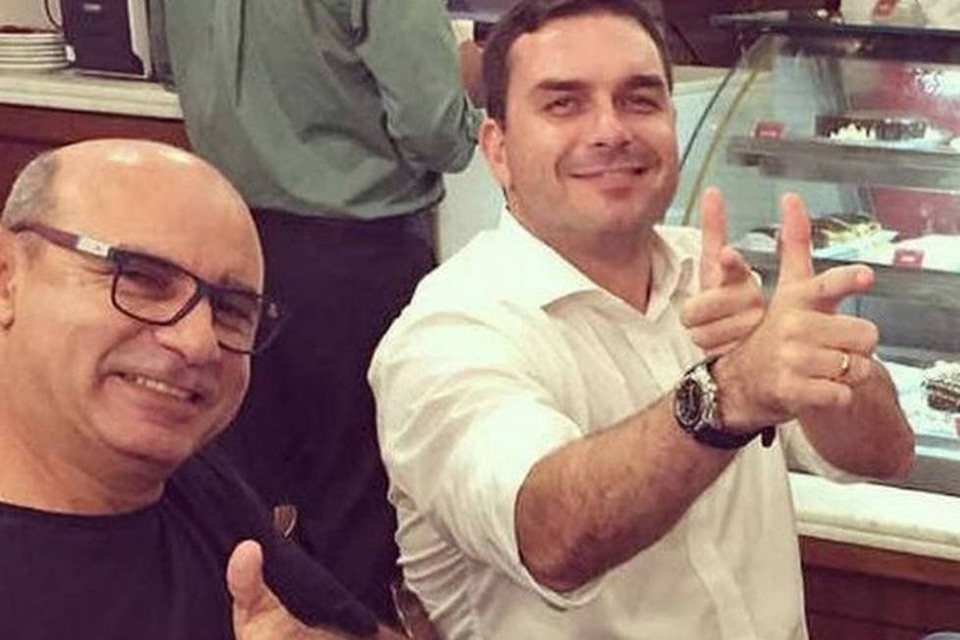RIO DE JANEIRO, BRAZIL – The arrest of retired state police officer Fabrício Queiroz renders an indictment against Senator Flávio Bolsonaro imminent. As a result, the son of President Jair Bolsonaro should soon cease to be merely under investigation, and become a formally indicted defendant in a criminal case.
The rulings handed down by Judge Flávio Itabaiana of the 27th Criminal Court suggest that the magistrate believes there is sufficient evidence to accept an indictment, which would render Flávio a defendant charged with the crimes of embezzlement, money laundering and criminal organization, of which he is the putative leader.

“Analyzing the evidence in the investigation, particularly the financial intelligence reports produced by the COAF (Council for Financial Activities Control), the bank statements and other diligences produced, it is clear that there is evidence of the crime of embezzlement, carried out in the ‘splitting’ scheme of salaries of ALERJ’s (Legislative Assembly of Rio de Janeiro) employees,” wrote Judge Itabaiana, in the ruling ordering Queiroz’s arrest.
The Code of Criminal Procedure provides for the filing of a complaint against those arrested under an investigation within ten days. The deadline is not typically strictly observed, but the Rio de Janeiro Prosecutor’s Office (MP-RJ) seldom exceeds a two-month delay.
The proceedings have been ongoing for two and a half years in the MP-RJ, having been suspended for almost five months due to individual rulings by Federal Supreme Court (STF) Justices Luiz Fux and Dias Toffoli.
In an audio disclosed by the newspaper Folha de S.Paulo, Queiroz described the threat of the investigations as “a comet-sized sting”.
The dynamics described by the Prosecutor’s Office on the ‘splitting’ scheme operation has already been outlined in the three requests for interim measures filed by the prosecutors with the Court. The extent of the total number of people and amounts involved is still to be determined.
According to the investigations, Queiroz was the senator’s financial operator in the scheme. He received part of the salary of some of Flávio’s advisers through payments in kind, bank transfers or cash. Prosecutors claim that part of the money raised was used to pay the senator’s personal expenses.
In Queiroz’s arrest warrant, the GAECC (Specialized Anti-Corruption Task Force) lists 11 advisers who made payments to Queiroz, identified after April’s authorized lifting of bank secrecy. In total, this group transferred R$2 million to Queiroz between 2007 and 2018.
However, the prosecutors write that Flávio’s former adviser withdrew R$2.9 million in the same period, suggesting that the sum actually handed over to him may be higher. The lifting of secrecy involved 78 former ALERJ employees linked to Flávio, according to the MP-RJ.
The GAECC’s petition this month also points out how prosecutors should link the payments in kind made by Queiroz to Flávio with the ‘splitting’ scheme.
When analyzing the regular payment of school and health plan fees on behalf of the then State Deputy, investigators point to the fact that he and his wife did not withdraw any funds in the corresponding period.
Until 2015, Flávio had no other declared source of income besides the ALERJ salary deposited in his account. This was the year the senator opened his chocolate store, an establishment that typically receives payments in kind and is pointed out as another means of laundering money from the ‘splitting’ scheme. The other would be the purchase and sale of real estate, according to the MP-RJ.
What remains to be ascertained is Queiroz’s advantage as the scheme’s operator. The MP-RJ’s latest petition to the Courts points out that Márcia Aguiar, the wife of Flávio’s former adviser, and an unidentified neighbor were giving up their personal details in exchange for some kind of “allowance”.
Another question arising from this inquiry is where Queiroz kept or invested his money in kind. His wife was paid R$174,000 in cash from unknown sources, according to the investigators. The amount was used to pay for the medical treatment of the retired police officer.
Queiroz and Adriano da Nóbrega’s financial transactions should also be more detailed. The MP-RJ estimated the retired police officer received over R$400,000 from the his ex-colleague, without detailing the source of all funds in the arrest warrant. However, prosecutors stressed in the document what they consider an “influence on militiamen” in Rio das Pedras.
The evidence collected so far does not support the senator’s involvement in the attempt to hamper investigations, which would preclude any arrest warrant.
The police seized two cell phones from Queiroz and one from attorney Luis Botto Maia, very close to the senator. The result of this examination could raise questions regarding Flávio’s potential criminal activity, which could lead the case to the Office of the Prosecutor General, given the senator’s legislative priviledge.
The senator is under investigation in the a lower federal court because the facts are unrelated to the position he currently holds.
The investigation against Flávio began in January 2018, when a COAF report pointed to R$1.2 million in financial transactions considered atypical in Queiroz’s bank accounts between January 2016 and January 2017.
In addition to the amount, the operations’ method attracted attention: cash deposits and withdrawals were made on dates close to the payment dates of ALERJ employees.
Source: Folhapress

